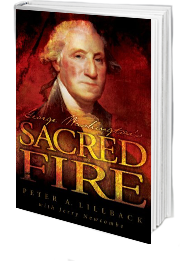Ballots, Bullets and Ballistic Missiles: It’s Election Time Again
It’s election time again. And pointedly, the political parties are pounding the pavement to persuade the public, push policies and prepare for parties, prestige and power—perchance they prevail. It all comes down to the ballots, and to be exact, to how many are cast for each candidate in the respective races. The essential purpose of a ballot is to enable a secret vote by members of a group who are selecting a candidate in an election, or, expressing their opinion about an issue.
Have you ever wondered why when we vote we “cast a ballot”? Why don’t we say instead that we mark or make a ballot? We don’t really throw the paper ballot we’ve marked. And in electronic voting machines, one doesn’t even have a paper ballot let alone anything to cast. You simply push a few buttons and you “cast your ballot”.
To understand why we use the well-known phrase, we need to recall some lesser known history. Words in a way are a lot like boxcars. If you take time to open them up, you will find they are filled with meaning and carry fascinating history. The words that support our electoral process have an interesting history. That’s true with the words vote and casting a ballot.
The word vote, for example derives from the Latin word votum that means “a vow, wish, promise to a god, solemn pledge, dedication”. Over time, this word has come to suggest that a member of group is expressing his or her wish that a potential leader be elected. It may even imply that one is promising or pledging support to that candidate’s leadership. That “wish” is expressed by a vote made by casting a ballot.
To appreciate the development of voting by “casting a ballot”, think of such well-known words and phrases that use the word ball, as in baseball, basketball, football, volley ball, eight-ball, billiard balls. Our word “ball” seems to relate to an ancient Greek word palla which meant a ball. Interestingly, the Greek word to throw is ballo. The word origin of ‘ballot’ seems to have come to us from this early Greek origin through the Italian language that has the words ballotta and pallotta, which are diminutive words of the Italian word for ball, namely, palla.
So what does a ball, a little ball, a pallotta, have to do with voting? Well, it happens that from antiquity, small balls have been used in voting to provide a means of having a secret vote. Votes were taken by these pallottas or ballots when a white ball was privately cast or dropped into a container to indicate a yes vote or a black ball was dropped or cast into the container for a no vote.
This can also be observed in the Scriptures. The word for vote in the Greek New Testament is pséphos, meaning a small smooth stone or a pebble (Acts26:10; Revelation 2:17). Here it refers to a pebble or a small stone that was used in voting. As a white stone or pebble typically meant “yes” and a black stone or pebble meant “no”, we can understand where the concept of being “black balled” came from. While we cannot pursue it here, the words “ostracize” and “black balled” have a similar history relating to the ways negative votes were cast in antiquity.
But as we consider casting our ballots in the upcoming elections, while not so obvious, the word ballots, bullets and even ballistic missiles are connected too. A bullet is a moving shaped piece of metal discharged from a firearm. Thus, a bullet or the ammunition expelled from a gun barrel derives from an early French word that is the diminutive of the word boulle, which like the word from which we get the word ballot, means a “small ball”.
Abraham Lincoln knew well the powerful difference between casting a ballot and shooting a bullet. As the Civil War was impending, Lincoln said in his July 4th, 1861 Address to Congress, “…that ballots are the rightful and peaceful successors of bullets; and that when ballots have fairly and constitutionally decided, there can be no successful appeal back to bullets; that there can be no successful appeal except to ballots themselves, at succeeding elections. Such will be a great lesson of peace, … teaching all the folly of being the beginners of a war.”
Listening to Lincoln should remind us why casting our votes are so important. The alternative to peaceful elections by casting votes is the terror and horror of bullets. In fact, we need to remember that the “little balls” that are etymologically behind ballots and bullets are related as well to the not so little payloads of ballistic missiles, for the word “ballistic” shares with them the word “ball”. Ballistic relates to the construction and use of thrown objects and derives from that that Greek word “ballo”, meaning to throw.
So, here’s what’s at stake in this election and most national elections. Either we choose the peace of ballots or we face the danger of bullets. Either we vote with wisdom to sustain national and international order or we allow the chaos of conflict to devolve into more than bullets, perhaps even to ballistic missiles.
All said, cast your vote. But don’t “throw” away your vote. Think carefully, choose wisely and vote faithfully. Don’t let anyone “throw” an election. Be vigilant to preserve the sacred and remarkable privilege of casting a vote in secret as a vote for peace in public. Elect to vote this year and every year. Your little vote just might determine which kind of “little balls” will shape your future.
